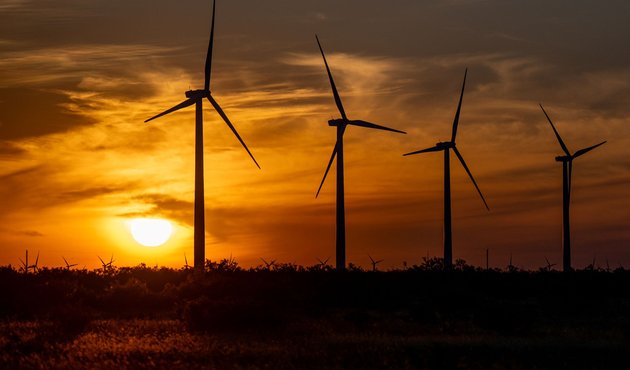The fallout from Middle East tensions underscores the peril of fossil fuel dependence. So why are US lawmakers retreating from clean energy?
Recent events in Israel and Iran show once again our economic vulnerabilities to oil price shocks and how inadvisable it is for the current Administration to pull back US investments in clean energy.
The capitulation of House Republicans – some of whom had publicly supported protecting the Inflation Reduction Act’s (IRA) energy investments – to pass the budget reconciliation bill without demanding changes to protect that funding and those jobs is a shortsighted mistake.
Clean energy sources have rapidly grown to account for the majority of new power added to the US grid. For 2025, the combination of new solar, wind and battery power is expected to make up an incredible 93% of energy addition.
Part of the reason that sources such as solar have rapidly gained a significant share of energy generation is that prices have quickly fallen, with improved and cheaper battery storage capacity supporting scaling.
That Texas has become the state with the largest share of renewable energy underscores that smart money is on energy’s clean future, not its fossil fuel past. That its state House rejected multiple attempts to curtail renewables growth earlier this spring should end any lingering perceptions or already-refuted arguments that renewables need to be a partisan issue.
Elected officials on both sides of the aisle have expressed support for keeping job-creating investments from the IRA, given that these projects are preparing the US workforce for the economy of the future – whether by teaching lucrative new skills or preparing us to fuel technologies such as AI in a more sustainable way.
Building the future economy on a clean energy base that already has tremendous momentum makes a lot more sense than making false promises to neglected communities during campaign season about bringing back coal.
The business community understands that clean energy is a crucial component to meeting energy demand. As Rich Powell, CEO of the Clean Energy Buyers’ Association, has pointed out, putting constraints on new energy infrastructure at this moment is “rowing in the wrong direction.”
Not to mention, Senator Hickenlooper has raised that it’s a topic on which environmental and business leaders find common ground.
We agree – clean energy expansion can insulate the country against fossil fuel-driven shocks, add capacity in a way that does not compromise the air we breathe or water we drink, create jobs and serve as the foundation to the 21st-century economy.
The “how” of the energy transition matters greatly. Previous work by Global Witness has shown that stakeholders share interests in best-in-class standards for obtaining the minerals needed for clean energy, as this protects communities and the environment as well as mitigating supply chain risk.
We cannot undermine either energy security or the climate by having anything less than the highest environmental and human rights standards for the mining, manufacturing and recycling of transition minerals.
For this, we call on all who clearly see the importance of renewables’ future – policymakers, business leaders, investors and communities – to join Global Witness and so many others in supporting a clean energy future that benefits us all.



